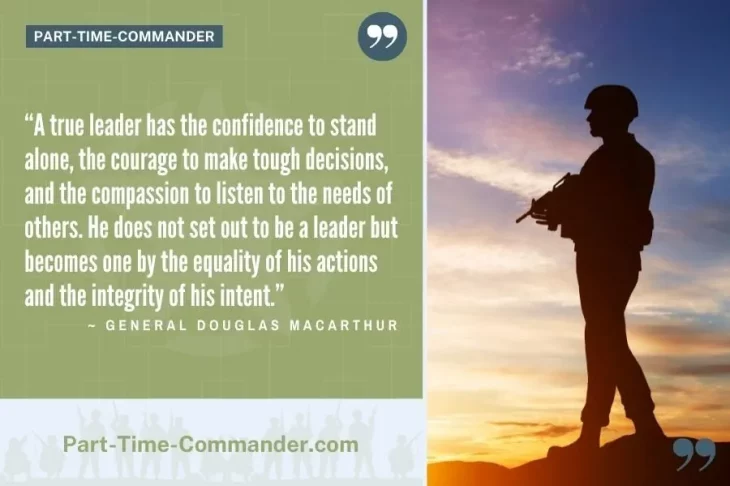Seek Counsel to Unlock Success
“No man so wise that he may not easily err if he takes no other counsel than his own. He that is taught only by himself has a fool for a master.”
Ben Jonson (British Playwright and Poet, 1572-1637)
Seeking wise counsel has made all the difference during my military service; although, it hasn’t always been easy. I have learned the importance of finding the right advisor for the situation, using discernment to understand which advice is worth taking, and finally, having the humility to listen when the counsel takes me outside my comfort zone. Mentoring, coaching, and counseling are often used interchangeably. For the purpose of this article, I use “counsel” as a verb–seeking advice, guidance, or assistance from someone who is in the best position to provide you a credible perspective that you deem valuable. There are a wide range of potential “counselors” from a mentor to a boss, family member, friend, chaplain, or a professional counselor.
A few years ago, I was facing a challenging situation that involved serious accusations, heightened emotions, and multiple parties and was unsure of how to proceed. I knew I needed advice and guidance, but from whom? After some thought, I settled on a former boss who I assumed had faced something similar in his twenty-plus-year military career. After I explained the situation, he provided his perspective and recommended a possible solution. The call wasn’t lengthy or drawn out, but armed me with enough confidence to move forward with resolving the situation. By deliberately seeking out someone who had the appropriate experience, the trajectory of the difficult situation was shifted and resolved for all involved parties. Reflecting back on this situation, I am glad I made that short call to someone outside of my chain of command who provided sound counsel.
During a conference this past year, I heard from Dr. Deborah Birx, former White House COVID Task Force coordinator, about her experience with seeking counsel. In 2020, she was frustrated with her job and the dynamics surrounding her position to the point that she wanted to quit. Before pulling the trigger to resign, Dr. Birx went to her previous boss, President George W. Bush, who she hoped would reinforce her position and let her know it was okay to quit. However, his counsel ended up being quite different. In the end, Dr. Birx stayed in her position until the end of the administration. Even though President Bush’s advice was counter to what she wanted to hear, he provided her with the confidence and resolve to finish the job. The lesson is to seek counsel when needed, but to ensure the advice is from someone who has the requisite experience, knowledge, and information to accurately assess the specific situation.
Throughout my military career, I often talked to or gathered information from people that had “been there, done that,” whether it was related to the military, like assignment options, or more personal, like preparing for marriage. Early on, my quest for advice was not very deliberate—asking around seemed like the prudent thing to do; however, as I matured and entered roles with increasing responsibility, I became more methodical in my approach. The following are a few questions to ask when considering the finer points of seeking counsel.
Why seek counsel? As alluded to in the examples above, seeking counsel at the right time with the right person can often lead to better results. In the end, there are issues that are so significant or complex they cannot be answered by a Google search or an artificial intelligence self-help app. We are all unique and require specialized advice and guidance to meet our distinct circumstances. Military members, in particular, often face scenarios that are vastly different from their civilian counterparts, especially when it comes to the health, well-being and performance of Airmen, Soldier, Sailors, Guardians, or Marines. The military is more than just a job and there are times that the lines blur between what is considered a personal or a professional issue. It is helpful at times to have other inputs that can shed light on a situation, provide a different perspective, or support a particular course of action based on previous experience. Ultimately, assuming you are the person with all the right answers all the time can lead to lost opportunities or negatives outcomes.
Who should you seek counsel from? In true military fashion, the answer is “it all depends.” The situation or issue will drive the answer. A long-term mentor might be a great place to start, but may not be the final answer if he/she has never faced a similar situation. If your mentor is not well suited to provide counsel, the hope is that they would acknowledge this and steer you in the right direction. Other options I have used in the past include an immediate supervisor, a more senior individual outside of the chain of command, or helping agency professional. For personal issues, resources could include grandparents, parents, siblings, friends, a chaplain, and non-profit organizations. Some of the personal options could be used to help navigate professional issues, too.
Counsel can even come in unusual circumstances. I found myself “trapped” with my grandparents on a twenty-hour road trip where we encountered a life threatening blizzard. During that trip I was inundated with plenty of “counsel” whether I was seeking it or not. Since we had plenty of time to burn, I took the opportunity to ask them questions on multiple topics—finances, charitable giving, children, and even their life mistakes. In all honesty, their advice on that trip was well received and generally put to good use over the years. Good counsel can come in unique circumstances as I learned almost twenty years ago.
What qualities should someone have to provide counsel? I advise seeking counsel from someone you trust, who has good character and integrity, general experience with the issue or able to provide other options, and will be discrete with the information. However, there are circumstances when you may want the individual to share your situation with someone else that could open new doors or provide additional perspectives.
What are the benefits? Some benefits of seeking counsel include gaining a broader perspective from someone that views things differently, uncovering blind spots, viewing a situation from a different angle, and increasing resilience by providing an outlet for healthy exploration of the issue. When dealing with difficult scenarios, it can help improve your own physical and mental health to have someone to talk to. For some of us, listening more than speaking can be a challenge, but seeking counsel can ‘flip the script’ and lead to reflection and discernment.
What are the drawbacks? There are some potential drawbacks to opening yourself up to getting counsel. For example, the person you confide in could end up not being discrete with your issue or the response you receive may be difficult to hear and/or act upon. However, in my personal opinion, the benefits far outweigh the drawbacks. The more counsel that is sought, the easier it becomes to discern who to trust and how and when to ask for counsel, leading to increased positive results.
Conclusion
My most important piece of advice for those in the military is — don’t go it alone. Build relationships that you can draw on throughout your career. It is not always easy to ask for advice, guidance, or counsel, especially when stakes are high or you are opening yourself up to scrutiny; however, seeking counsel is the piece of advice that I wish I would have more broadly utilized when I was younger. When I sought out advice from the right people at the right time, the benefits became apparent in both my military and personal endeavors. I humbly suggest that seeking counsel is a superpower that will serve you well in your military and life journey. To your success.

Fox
21-year active duty Air Force Officer who has served in multiple roles and positions. He enjoys basketball, fishing, making maple syrup, and playing competitive pickleball with his family and friends. He is currently seeking counsel on his life journey.


